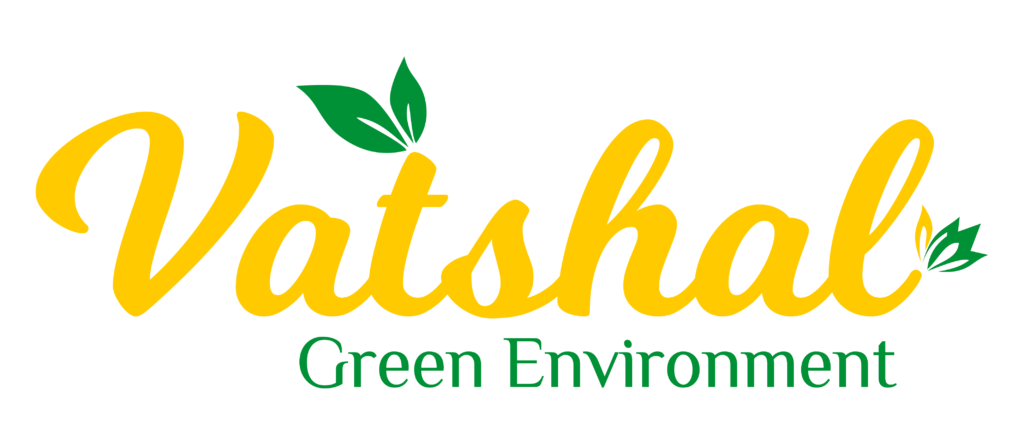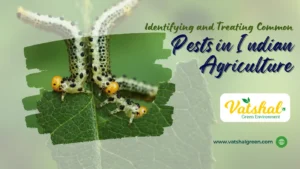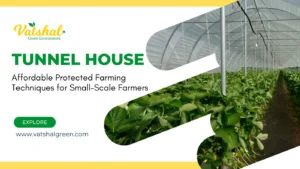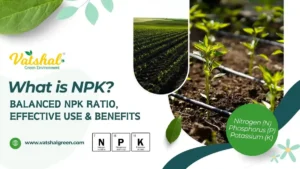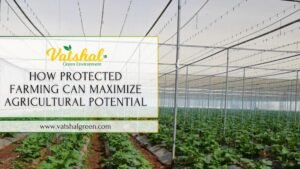Farming has always been the backbone of human civilization, but challenges such as unpredictable weather, pest infestations, and fluctuating market demands often make it difficult for small-scale farmers to sustain profitability. Enter Tunnel Houses—an affordable and efficient solution to these challenges. These structures allow farmers to practice protected farming, creating controlled environments that ensure high yields and consistent quality, regardless of external conditions.
At Vatshal Green, we specialize in Tunnel House setup, installation, and contract-based farm management to help farmers maximize their productivity while minimizing risks.
What is a Tunnel House?
A Tunnel House, also known as a polytunnel, is a lightweight, arched structure covered with a UV-treated plastic or polyethylene film. Its design is simple yet effective, creating a semi-controlled environment for crops by shielding them from external elements such as heavy rain, strong winds, frost, and pests. Unlike traditional greenhouses, tunnel houses are:
-
- Cost-effective to build.
-
- Easier to maintain.
-
- Ideal for small to medium-scale farming.
These structures are versatile and can be customized to suit various crops, climatic conditions, and farming goals.
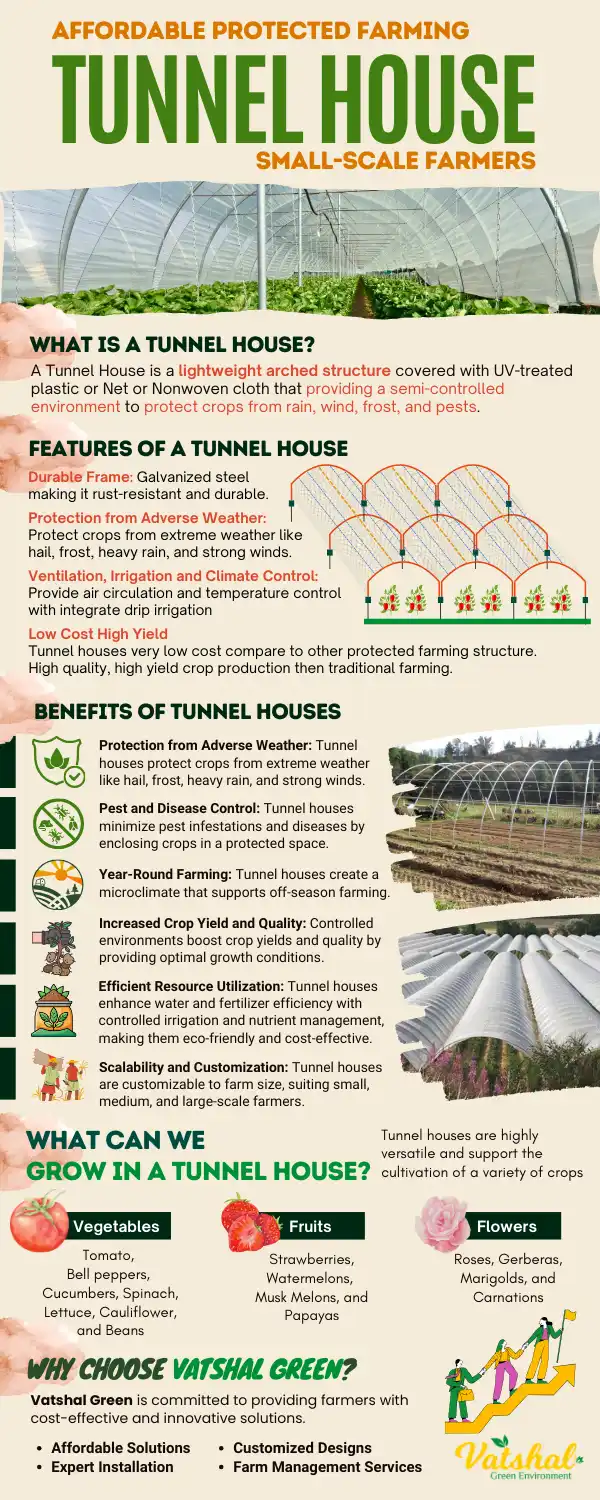
Features of a Tunnel House
Durable Frame
The framework is typically made of galvanized steel or aluminum, ensuring it is resistant to rust and wear over time.
High-Quality CoveringThe polyethylene film used for covering is UV-treated, which allows optimal sunlight penetration while protecting crops from harmful UV rays.
Ventilation and Climate Control
Many tunnel houses come with adjustable openings for ventilation, ensuring proper air circulation and temperature regulation.
Irrigation Integration
Drip or mist irrigation systems can be seamlessly integrated into tunnel houses, ensuring efficient water usage.
Benefits of Tunnel Houses for Farmers
1. Protection from Adverse Weather
Tunnel houses provide a shield against weather extremes like hailstorms, frost, excessive rainfall, or high winds. This ensures that crops grow uninterrupted throughout the year, regardless of seasonal changes.
2. Pest and Disease Control
By enclosing crops within a protected space, tunnel houses reduce the chances of pest infestations and diseases. This minimizes the reliance on chemical pesticides, promoting healthier and more organic produce.
3. Year-Round Farming
Tunnel houses create a microclimate that supports off-season farming. Farmers can grow crops even when outdoor conditions are unfavorable, giving them a competitive edge in the market.
4. Increased Crop Yield and Quality
Crops grown in controlled environments tend to have higher yields and better quality due to optimal growth conditions. This translates into higher market value and profitability.
5. Efficient Resource Utilization
With controlled irrigation and nutrient management, tunnel houses use water and fertilizers more efficiently, making them eco-friendly and cost-effective.
6. Scalability and Customization
Tunnel houses can be built to match the size and requirements of the farm, making them a viable solution for small, medium, and large-scale farmers.
What Can You Grow in a Tunnel House?
Tunnel houses are highly versatile and support the cultivation of a variety of crops, including:
-
- Vegetables: Tomatoes, bell peppers, cucumbers, spinach, lettuce, cauliflower, and beans.
-
- Fruits: Strawberries, watermelons, musk melons, and papayas.
-
- Flowers: Roses, gerberas, marigolds, and carnations.
These crops not only thrive in protected environments but also fetch premium prices in the market.
Steps to Setting Up a Tunnel House
Site Selection
Choose a flat or slightly sloped area with good sunlight exposure and easy access to water.
Design Planning
At Vatshal Green, we design tunnel houses tailored to your specific needs, considering factors like the crop type, farm size, and budget.
Framework Installation
The frame is assembled and secured using durable materials such as galvanized steel pipes, ensuring stability and longevity.
Covering Application
The polyethylene film is carefully installed to provide even coverage and insulation, with provisions for ventilation.
Irrigation Setup
Drip or mist irrigation systems are integrated to ensure consistent water supply, reducing wastage and manual labor.
Crop Planting and Maintenance
Once the setup is complete, the farm is ready for planting. Our contract-based farm management services can help you oversee day-to-day operations, ensuring optimal growth and productivity.
Why Choose Vatshal Green?
At Vatshal Green, we are dedicated to empowering farmers with cost-effective and innovative solutions. Here’s what sets us apart:
Affordable Solutions: We provide high-quality tunnel houses at a fraction of the cost of traditional greenhouses.
Expert Installation: Our team ensures a hassle-free setup, paying attention to every detail.
Customized Designs: We cater to diverse farming needs, whether you’re growing vegetables, fruits, or flowers.
Farm Management Services: Under our contract-based model, we take care of your farm, from planting to harvesting, allowing you to focus on market expansion.
How Can Protected Farming Benefit Small-Scale Farmers?
Protected farming using tunnel houses is a game-changer for small-scale farmers who want to:
-
- Reduce risks from weather and pests.
-
- Produce high-quality crops.
-
- Achieve consistent income throughout the year.
-
- Use resources like water and fertilizers more efficiently.
Conclusion
Tunnel houses are more than just a structure—they represent a step toward modern and sustainable farming. They help farmers overcome traditional challenges while increasing productivity and profitability.
If you’re ready to take your farming to the next level, Vatshal Green is here to help. With our affordable tunnel house solutions and professional farm management services, we aim to make protected farming accessible to everyone.
Contact us today to explore how we can transform your farming journey with tunnel houses.
